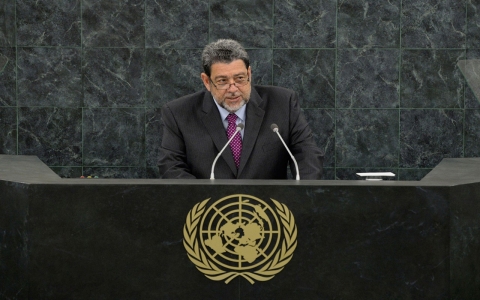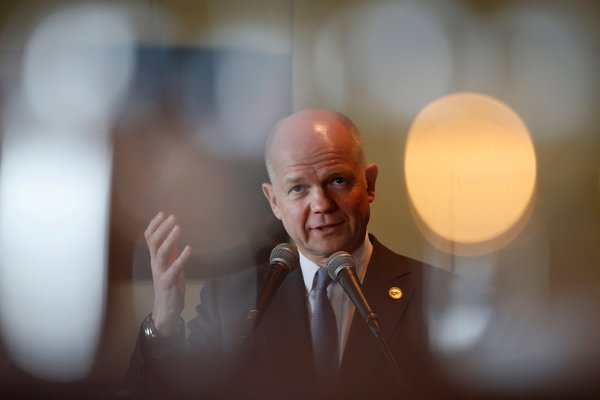Challenges facing reparations requests by Caribbean countries By Hermina Garic
Fourteen Caribbean countries have sought slavery reparations from European governments for several years. The United Kingdom (UK) has distinguished itself by engaging in ongoing dialogue and assistance, while questioning reparation requests.
In 2013 fourteen Caribbean countries sued the UK, France and the Netherlands for their roles in the trans-Atlantic slave trade in the United Nations’ International Court of Justice (ICJ). The lawsuits were brought by Caricom, a regional organization that was created to foster economic, political, and social integration of the Caribbean region, who hired a British law firm, Leigh Day to represent them. Caricom sued the UK for its role in slavery in the English-speaking Caribbean region, France for slavery in Haiti, and the Netherlands for their role in slavery in Suriname.
Saint Vincent and Grenadines' Prime Minister Ralph Gonsalves (Mary Altaffer/Getty)
The Caribbean countries emphasized the lasting impact of colonization, institutionalized by European governments, on the development of the Caribbean region. Caribbean review boards, such as the Caribbean Reparations Commission, found Caribbean nations have faced stunted economic growth, educational development, and health problems as a result of European colonization. William Hague, the British foreign secretary at the time, condemned slavery and pledged to eliminate it where it exists, but did not support reparations.
The Caribbean countries pushed for reparations again in 2014 after limited response from the international community. Caricom and Leigh Day applied political pressure within the United Nations (UN). Caribbean countries sought to utilize reparations for the development of better educational and health programs, and to preserve history of slavery.
William Hague (Kim Hong-ji/Reuters)
The UK was the only government to respond and restated their position from 2013. Instead of reparations, the UK said “we should concentrate on identifying ways forward with a focus on the shared global challenges that face our countries in the twenty-first century.
In 2017, Caricom sent letters requesting payments from France, Britain, and the Netherlands, as well as Portugal, Spain, Norway, and Sweden. Caribbean countries also requested an apology from respective leaders. The UK responded by increasing investments in the region, but not directly addressing the reparations.
The UK spent 300 million pounds (US equivalent of $387 million) in infrastructure development in the Caribbean through what is known as the UK-Caribbean infrastructure partnership. The UK also spent $60 million in improving healthcare and enhance structural resistance to tropical storms. Though robust, these actions do not directly address reparations.
Caribbean countries have been hampered by the ICJ’s jurisdiction, which only goes as far as the UN members allow. The UK does not recognize ICJ jurisdiction in disputes prior to 1974, while The Netherlands does not recognize ICJ judgments on disputes prior to 1921. . France does not recognize the ICJ rulings as compulsory at all.
Although the United Nations has an International Convention on the Elimination on All Forms of Racial Discrimination, this does not mention colonization. In addition, the ICJ is only allowed to bring forth cases for crimes that are committed when a law exists that punishes the crime. Slavery and colonization predated the UN, so there were no international policies treating either as crimes.
Caricom was successful in achieving an economic response the UK after they pressed for slavery reparations in 2013. Caricom is continuing to push for these reparations today because the UK is the only European government that has responded. Caricom will most likely continue to keep pushing for the reparations to be met on the terms that the Caribbean countries initially set.
Hermina Garic is a government student at Utica College and an intern for the K. Della Ferguson Womyn's Resource Center







